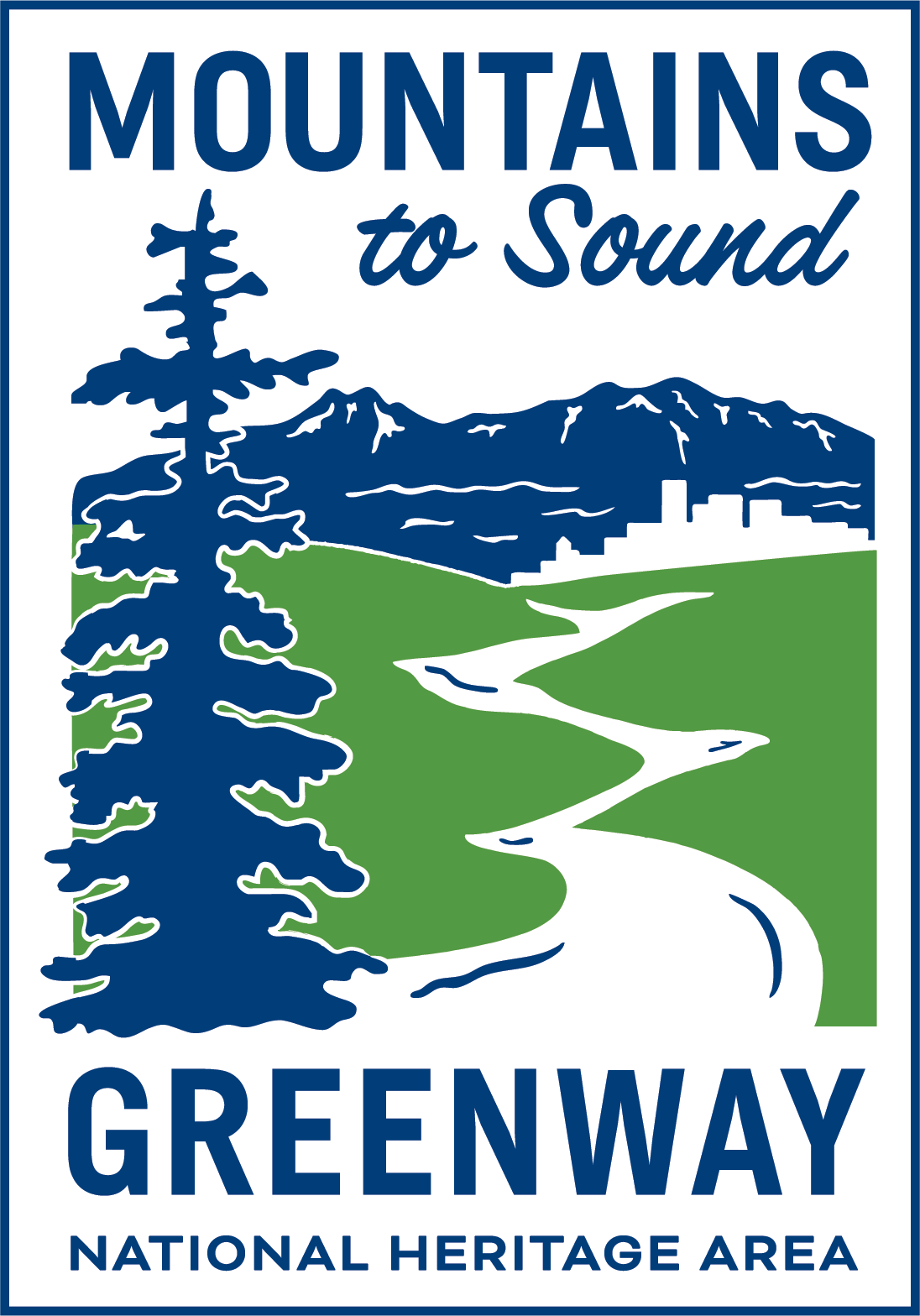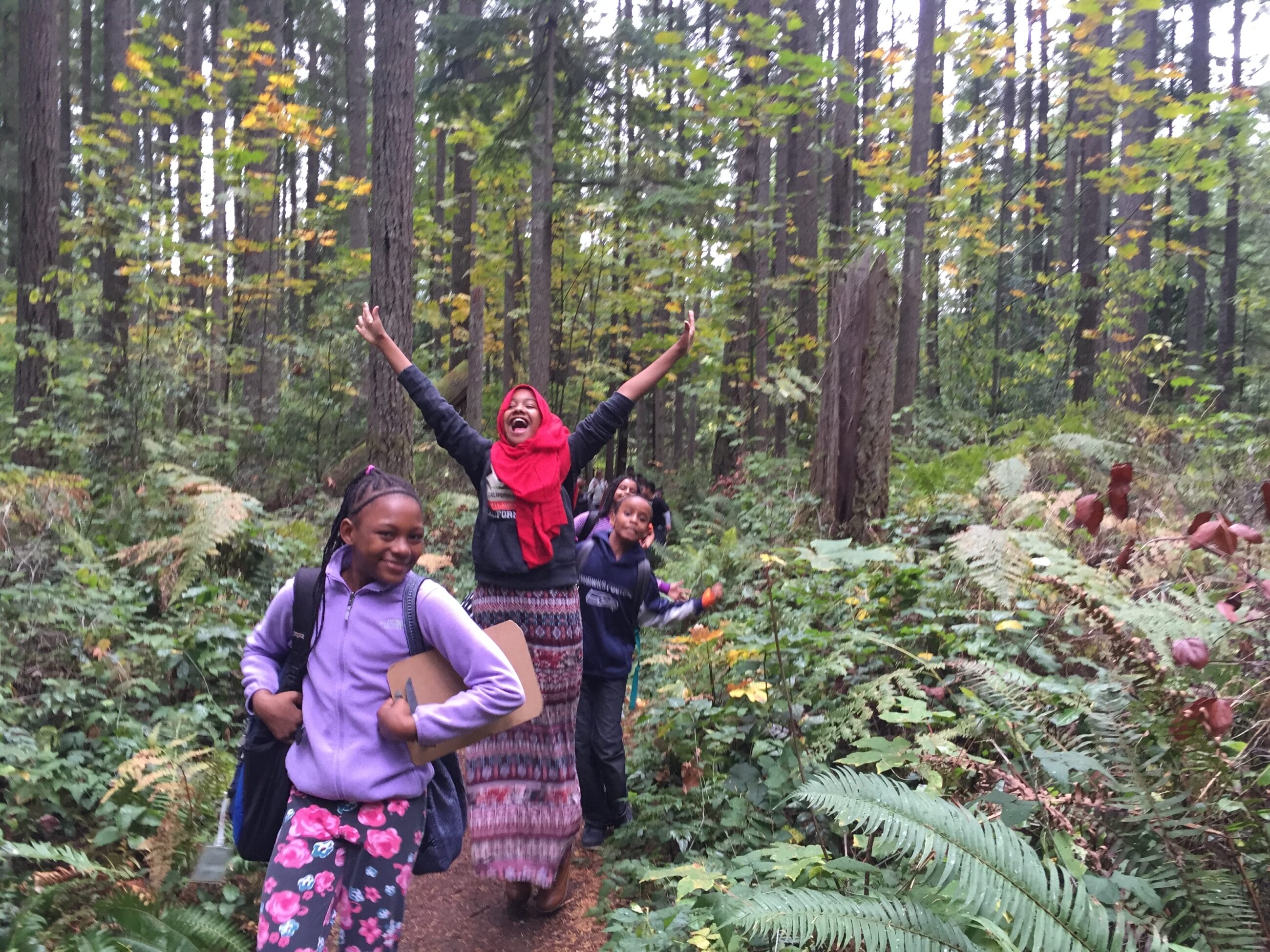On average globally, today’s kids spend only an hour outdoors per day, less than we allow our maximum security prisoners or free-range chickens.
In King County, less than 1 in 5 youth get the recommended 60 minutes a day of physical activity, and low-income communities have less access to green and natural spaces.
By 2050, the central Puget Sound region’s population is expected to increase by 1.8 million, putting pressure on natural lands and increasing a need for stewardship.
These are problems we can solve.
The Greenway Education Program seeks to inspire and empower young people with knowledge and skills they need to be conservation leaders. We believe that one of the most important requirements in building a culture of stewardship, and achieving long-term sustainability of natural resources, is educating youth. By helping young people understand the role they play in their local environment, we can empower them to be part of the solution. Since 1998, we have engaged nearly 60,000 4th-12th grade students from King County schools in hands-on science education that connects to real-world environmental issues. In the 2018-19 season, the Greenway Education Program engaged 4,050 students, 53% of whom were from low income schools, and dedicated over 3800 hours of volunteer student hours on restoration projects.
We believe that cost should never be a barrier to access to the outdoors, and that every child should have a chance to explore the natural world. The Greenway Education Program partners with schools that have a large percentage of low-income students, and we focus our internship outreach on youth from demographics underrepresented in the environmental field. We also offer scholarships and bus assistance to ensure to school is excluded from our programs due to cost.

How we do it
Our core program leads students from knowledge to exploration to action. Whether they’re studying forest ecosystems, salmon stream health, or the balance between conservation and human use, they begin their studies with an interactive lesson in the classroom. Then they hone their skills in the field, working with their classmates to study and explore an ecosystem and following their curiosity. Finally, students take action by participating in a stewardship event to care for and protect the ecosystem they just got to know so well.
In partnership with King County Wastewater Treatment Division, we also host 12 Clean Water Ambassador interns, high school aged youth who spend their summer learning about water use, environmental issues, and ecology in King County. They prepare projects to bring back to their communities as Ambassadors in the school year.
“We are the future generation and we will decide what to do with the forests.”
5th grader at Samantha Smith Elementary
|
Learning |
Building |
Empowering Conservation Leaders |
|
STUDENTS TAKE OWNERSHIP of their learning by asking questions
STUDENT EXPERTS investigate a topic in depth, collecting and interpreting data with instructor guidance, and then teaching their peers
APPLY CLASSROOM LEARNING to real-world questions, using math,
BUILD SCIENTIFIC UNDERSTANDING through observation and critical thinking |
INSPIRE A STEWARDSHIP ETHIC by understanding people’s role in the
STRENGTHEN RELATIONSHIPS with teachers and peers by exploring
BUILD CONNECTION TO PLACE through study, exploration, and stewardship
CONNECT WITH ENVIRONMENTAL LEADERS through job shadows, tours,
Students feel CONNECTION to the land they study, OWNERSHIP of their ability to care for it, and PRIDE in their accomplishments
|
BUILD CONFIDENCE in the outdoors by gently pushing the edges of students’ comfort zones while exploring nature through curiosity-driven exploration and play
DEVELOP SKILLS in environmental restoration, scientific research, and communication
EMPOWER YOUTH TO GIVE BACK by supporting them in the development and implementation of community-based actions
ADAPTIVE TEACHING matches students’ learning needs and comfort level in the outdoors to ensure a learning experience that feels challenging, safe, and fun
|
“I’ve never been so excited to learn about animals in my life!”
Student Melissa
By the numbers

In the 2018-2019 season, the Greenway Trust Education Program…..
- Engaged 4050 students in school year programs and special events
- Completed 3840 student-hours of environmental restoration
- Hired 10 high school-aged youth as Clean Water Ambassadors, selected from over 300 applicants
- Partnered with state, county, city, and private agencies and organizations including King County Schools, King County Wastewater Treatment Division, Washington Department of Natural Resources, Washington State Parks, City of Issaquah, Kokanee Work Group, and YMCA Camp Terry.
Of our students in school year programs…
- 53% attended low-income schools
- 83% demonstrated an increase in knowledge


